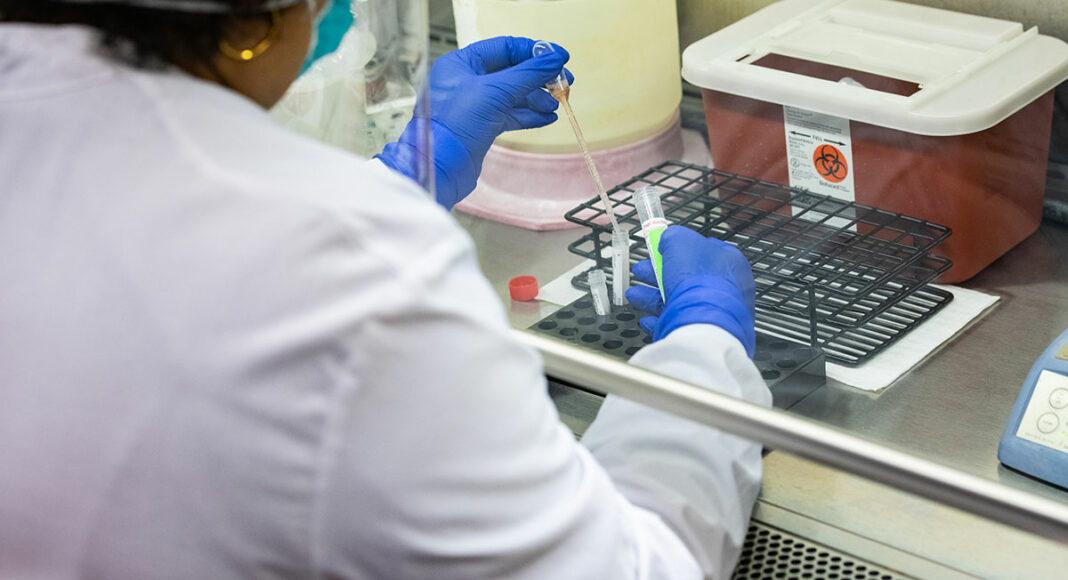County Health Officer Dr. Gail Newel expressed concern on Thursday about the pace with which Gov. Gavin Newsom is reopening sectors of the economy.
“We’re concerned about all of this reopening that is happening so quickly,” Newel said. “The governor is not following the cadence that was expected, where we would open one area and we would have 21 days to look at that incubation period and the result of that action.”
Local health orders, meanwhile, are being loosened, in step with announcements from Newsom and state officials. Newel has stopped short of drafting new local health orders stricter than ones issued by the state—something she has the authority to do.
“We are trying to walk this very fine line between the very real cost of the economic devastation of our community with the health and safety of the public. So we’re going to give this a try,” Newel said. “We’re going to reopen along with the governor and see how our community does and see how our community looks, and we’ll go from there.”
After getting a green light from the state, Newel’s revised health order for Santa Cruz County went into effect on Wednesday, allowing several sectors to reopen, including in-store retail, churches, expanded childcare and open gallery spaces and outdoor museums, like the Mystery Spot—with modifications.
Now Santa Cruz County is applying for a variance, with the paperwork going to the county Board of Supervisors tomorrow at a special meeting. If the board signs off, the variance packet will go to the California Department of Public Health. If approved, the variance would allow for the opening of shopping malls, swap meets, restaurants, hair salons, and barbershops—again, all with modifications. Both Newel and Board Chair Greg Caput have to sign off on the paperwork and attest to it being factual.
Newel said the Santa Cruz County supervisors and Santa Cruz County Administrative Officer Carlos Palacios made the request for Friday’s special meeting and scheduled it four days earlier than the county’s regularly scheduled board meeting on Tuesday, June 2. Health Services Agency Director Mimi Hall clarified the county was already planning to have its packet of documents finished this week anyway.
Update on cases
The county’s coronavirus page says there have been 205 known Covid-19 cases, including 137 recoveries and two deaths.
According to county data, most local victims of Covid-19 have been Latino. The case count has been growing in the Watsonville area. Newel attributes this growth to four relatively new case clusters, three of them related to multi-household family events held over Mother’s Day Weekend.
Newel said the county has had seven Covid-19 cases among first responders, including firefighters, with six having recovered. The county has had 19 cases among health care workers, with 18 having recovered, she said.
Over Memorial Café Rio
Over Memorial Day Weekend, a band jammed outside Café Rio in Aptos, which was not best practice, county officials said.
“It resulted in a gathering,” Newel said. “The intentions were good of the restaurant owner. She really wanted to give a gift of live music to the community. But the band itself was a gathering that’s not allowed, so that, first of all, was not a good idea. And then the band, of course, created a gathering in the public.”
Café Rio’s owner did not immediately respond for comment.
Latest on Testing
The OptumServe test site in Watsonville is open to all residents, even if they don’t have symptoms, Newel said. She added that there are additional OptumServe sites in neighboring counties that Santa Cruz County residents are also able to use.
“You don’t need a doctor’s order to go there,” Deputy Health Officer Dr. David Ghilarducci said. “You just sign yourself up and go.”
Hall said the county has requested an additional OptumServe site from the state.
Newel said that, if someone is ill, they should not go to an OptumServe site, but should instead coordinate with their physician to get an appointment.
Surveillance Testing of Skilled Nursing Facilities
Ghillarducci announced that the county will implement surveillance testing at skilled nursing facilities, thanks to new guidance from the state. “This is a high-priority for us,” he said. “We consider our skilled nursing facilities to be a particularly vulnerable population.”
Ghillarducci said the county will launch surveillance testing at one skilled nursing facility next week as part of a pilot program. The intention is to scale up shortly after and prevent disease spread among the medically vulnerable. The plan is to test all residents once and also to test all health care providers monthly.











